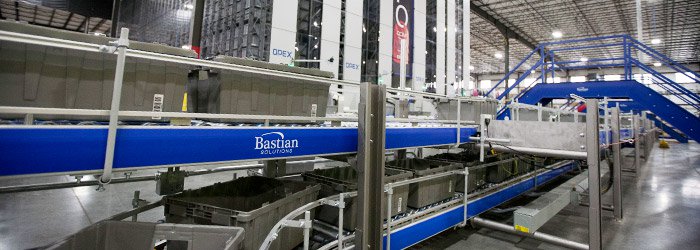
Buying Versus Leasing Industrial Equipment
Jason Nowak | 20 April 2016
Interest rates, depreciation, down payments, and more can all be factors in whether you should purchase or lease your industrial equipment. When it comes to procuring industrial equipment, we have to look at what option is best for our companies.
Many businesses often seek to save as much money as possible when it comes to acquiring this type of equipment. Some businesses have available capital to invest in purchasing new equipment, while others prefer leasing. There are benefits to both buying and leasing industrial equipment, but the ultimate decision should be based on what is best for your particular business. Many factors play a role in determining the best acquisition method. Good starting points to look at include:
- Interest rate and depreciation for buying
- Residual percent for leasing
- Down payments for both options
This is a simple calculation for some equipment that costs $120,000 with a 5 year loan or 5 year lease option both with a 25% down payment. The numbers are obviously not completely accurate, and depend on your particular situation, but you can see that over the course of 5 years, you would save more money if you were to lease the equipment. However, the difference is still close enough that you could buy if you have the available capital and are able to make the investment.  Now, let’s take a look at a longer loan/lease period of 7 years. Here we have the residual percent on the lease changing to 20% and the down payment increasing to 30%. In this case, it makes more financial sense to buy the equipment rather than lease it.
Now, let’s take a look at a longer loan/lease period of 7 years. Here we have the residual percent on the lease changing to 20% and the down payment increasing to 30%. In this case, it makes more financial sense to buy the equipment rather than lease it.  Ultimately, the decision whether to buy or lease industrial equipment is up to you and is dependent upon your business’ financial status and investment strategy. Based on the examples above, however, we can generalize that if you are smaller start-up business, it would likely make sense to lease.
Ultimately, the decision whether to buy or lease industrial equipment is up to you and is dependent upon your business’ financial status and investment strategy. Based on the examples above, however, we can generalize that if you are smaller start-up business, it would likely make sense to lease.
Conversely, if you are a larger company that has the financial support to buy outright, it might make more sense to take that route. Hopefully this article has outlined a few of the more important factors for you to consider when making this decision. However, there are also many other issues to take into consideration such as tax benefits, equipment availability, and budgeting. A
Jason is a Bastian Solutions Senior Consultant based out of St. Louis, Missouri. He has a Bachelor of Science in Mechanical Engineering from Missouri S&T and an MBA from St. Louis University. Jason has been providing manufacturing and distribution design and integration leadership across various industries for Bastian Solutions’ clients for over 15 years, helping clients develop strategic initiatives and lead successful system implementations.
Comments
No comments have been posted to this Blog Post
Leave a Reply
Your email address will not be published.
Comment
Thank you for your comment.